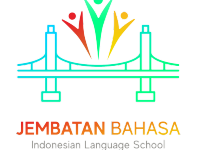Indonesia, an archipelago of over 17,000 islands, is not just about breathtaking landscapes and diverse wildlife. Its rich culture is equally fascinating, and it’s steeped in history and tradition . As someone embarking on the journey to learn Indonesian, you’re not just acquiring a new language but also opening a window into this vibrant culture. Here’s how understanding Indonesian culture can deepen your language learning experience, and why we highly recommend it!.
The Culture is a Key to the Language
Language and culture are intertwined. Learning Bahasa Indonesia is more than memorizing vocabulary and grammar rules. It’s about understanding nuances, idioms, and expressions that reflect the beliefs and customs of its speakers. Look at the Indonesian phrase “Sudah makan?” for example, which means “Have you eaten?”. This is not a simple question; it’s a way to show care and hospitality, reflecting the communal nature of Indonesian society.
The Influence of Religion
Indonesia is the largest Muslim-majority country in the world, and while Islam significantly influences its culture, it is also home to other religions like Christianity, Hinduism, and Buddhism which create a unique tapestry of traditions and practices. Knowledge of religious expressions, terminology and their significance can help you navigate conversations more respectfully and insightfully. For example, the phrase “Insya Allah” (God willing) is commonly used, reflecting the deep spiritual consciousness in everyday life. In Bali, the Hindu majority island, the expression “Astungkara” means the same thing but is derived from Basa Bali (Balinese language)
Social Hierarchies and Respect
Indonesian culture places a strong emphasis on respect and social hierarchy. You can see this in the language, which has different levels of formality depending on the context and the people involved. When speaking to elders or those in authority, you must use formal language and titles like “Bapak” (sir) and “Ibu” (madam) that acknowledge their social status.
The Role of Community
In Indonesia, the community plays a pivotal role. The concept of “Gotong Royong” or mutual assistance is deeply ingrained in the culture. This spirit of cooperation and community support is something you’ll come across often, whether it’s in language classes or while living in Indonesia. Participating in community activities or even simple group exercises in language classes can give you a firsthand experience of this cultural aspect.
Regional Diversity
Indonesia’s cultural diversity is vast, with each region having its own distinct languages, traditions, and customs. While Bahasa Indonesia is the official language, learning about regional languages like Javanese, Sundanese, or Balinese can enrich your understanding of the local culture. It can also enhance your travel experiences, allowing you to connect more deeply with the locals.
Cultural Etiquette
Cultural etiquette in Indonesia extends to language use as well. For example, it’s common to use indirect language to avoid confrontation or to show politeness. Instead of saying “no”, Indonesians might choose to be indirect, like say “mungkin” (maybe) or “nanti dulu” (later), which softens the refusal and maintains harmony. Understanding these subtleties can prevent misunderstandings and help you communicate effectively.
Celebrations and Festivals
Indonesia’s cultural richness is expressed through its numerous festivals and celebrations, and learning the language gives you a front-row seat to them. Words associated with festivals like “Lebaran” (Eid al-Fitr) or “Nyepi” (Balinese Day of Silence) carry deep cultural meanings. This ensures you have an immersive and authentic experience.
Food and Hospitality
Food is a significant part of any culture, and Indonesia is no different when it comes to culinary experiences. From street food to elaborate family meals, food is a way to bond and share stories. Knowing how to order food, express preferences, and compliment the chef in Indonesian can make your Indonesian experience meaningful.
By immersing yourself in both the language and the culture, you’re not just a learner but a cultural ambassador, bridging the gap between worlds and fostering mutual understanding. Selamat belajar! (Happy learning!)
